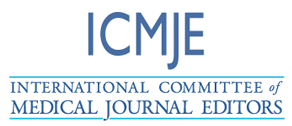Knowledge of Covid 19 and Compliance with Preventive Measures in Asaba Delta State, Nigeria
DOI:
https://doi.org/10.55677/IJCSMR/V4I8-06/2024Keywords:
Covid-19, Prevention, Compliance, Delta StateAbstract
Background: The 2019 COVID-19 pandemic has caused global trepidation and anxiety, prompting urgent measures like hygiene, isolation, and social distancing. However, cultural differences in knowledge and compliance with preventive measures persist.
Study design: A survey of 589 volunteers in Asaba, Nigeria, evaluated Covid-19 compliance and prevention techniques, focusing on demographic characteristics, knowledge, awareness, compliance rate, and awareness-affecting factors.
Methods: This study explored knowledge of COVID-19 and compliance with preventive measures among members Umuagu, Umuaji and Akwebulu communities Asaba, Delta State, Nigeria, using oral and written interviews. Data were sourced from 589 persons comprising 30 household heads age 18 years and above. Data were analyzed statistically anglicized thematically
Result: The study found that 99.5% of respondents had knowledge of COVID-19, with internet/social media and TV being the main sources of information. 82.3% believed everyone should wear face masks, and most protective measures included proper hygiene, self-isolation, face masks, and prayers. However, 52.1% felt the government was not doing enough to curb the pandemic, and poor knowledge negatively affected compliance with preventive measures.
Conclusion: To improve knowledge on the coronavirus pandemic, an accurate information dissemination strategy to ensure compliance with preventive measures is recommended.
References
Hu B, Guo H, Zhou P, Shi Z-L. Characteristics of SARS-CoV-2 and COVID-19. Nature Reviews Microbiology. 2021;19(3):141-154. doi:10.1038/s41579-020-00459-7
Cucinotta D, Vanelli M. WHO Declares COVID-19 a Pandemic. Acta bio-medica : Atenei Parmensis. 2020;91(1):157-160. doi:10.23750/abm.v91i1.9397
Hao YJ, Wang YL, Wang MY, Zhou L, Shi JY, Cao JM. The origins of COVID-19 pandemic: A brief overview. 2022;69(6):3181-3197. doi:10.1111/tbed.14732
Sharma A, Ahmad Farouk I. COVID-19: A Review on the Novel Coronavirus Disease Evolution, Transmission, Detection, Control and Prevention. 2021;13(2). doi:10.3390/v13020202
Olusola A, Olusola B, Onafeso O, Ajiola F, Adelabu S. Early geography of the coronavirus disease outbreak in Nigeria. GeoJournal. 2022;87(2):733-747. doi:10.1007/s10708-020-10278-1
Reuben RC, Danladi MMA, Saleh DA, Ejembi PE. Knowledge, Attitudes and Practices Towards COVID-19: An Epidemiological Survey in North-Central Nigeria. Journal of community health. 2021;46(3):457-470. doi:10.1007/s10900-020-00881-1
Olumade TJ, Adesanya OA, Fred-Akintunwa IJ, Babalola DO, Oguzie JU, Ogusanya OA et al. Infectious disease outbreak preparedness and response in Nigeria: history, limitations and recommendations for global health policy and practice. AIMS public health. 2020;7(4):736-757. doi:10.3934/publichealth.2020057
Buonsenso D, Valentini P, Macchi M, Folino F, Pensabene C, Patria MF et al. Caregivers' Attitudes Toward COVID-19 Vaccination in Children and Adolescents With a History of SARS-CoV-2 Infection. Frontiers in pediatrics. 2022;10:867968. doi:10.3389/fped.2022.867968
Nguyen N, Holodniy M. HIV infection in the elderly. Clinical interventions in aging. 2008;3(3):453-72. doi:10.2147/cia.s2086
Manikandan N. Are social distancing, hand washing and wearing masks appropriate measures to mitigate transmission of COVID-19? Vacunas (English Edition). 2020 July-December;21(2):136-7. doi: 10.1016/j.vacune.2020.10.010. Epub 2020 Nov 27.
Van Nhu H, Tuyet-Hanh TT. Knowledge, Attitudes, and Practices of the Vietnamese as Key Factors in Controlling COVID-19. 2020;45(6):1263-1269. doi:10.1007/s10900-020-00919-4
Alhumaid S, Al Mutair A. Knowledge of infection prevention and control among healthcare workers and factors influencing compliance: a systematic review. 2021;10(1):86. doi:10.1186/s13756-021-00957-0
Tegegne GT, Kefale B, Engidaw MT, Degu A,Tesfa D, Ewunetei A et al. Knowledge, Attitude, and Practice of Healthcare Providers Toward Novel Coronavirus 19 During the First Months of the Pandemic: A Systematic Review. Frontiers in public health. 2021;9:606666. doi:10.3389/fpubh.2021.606666
Ali KF, Whitebridge S. Perceptions, Knowledge, and Behaviors Related to COVID-19 Among Social Media Users: Cross-Sectional Study. 2020;22(9):e19913. doi:10.2196/19913
Agusi ER, Ijoma SI, Nnochin CS, Njoku-Achu NO, Nwosuh CI, Meseko CA. The COVID-19 pandemic and social distancing in Nigeria: ignorance or defiance. The Pan African medical journal. 2020;35(Suppl 2):52. doi:10.11604/pamj.supp.2020.35.2.23649
Takacs P, Pákozdy K, Koroknai E, Erdődi B, Krasznai Z, Kozma B. A randomized controlled pilot trial to assess the effectiveness of a specially formulated food supplement and pelvic floor muscle training in women with stress-predominant urinary incontinence. BMC women's health. 2023;23(1):321. doi:10.1186/s12905-023-02476-z
Bavinger JC, Shantha JG, Yeh S. Ebola, COVID-19, and emerging infectious disease: lessons learned and future preparedness. Current opinion in ophthalmology. 2020;31(5):416-422. doi:10.1097/icu.0000000000000683
Al-Mustapha AI, Abubakar MI, Oyewo M, et al. Socio-Demographic Characteristics of COVID-19 Vaccine Recipients in Kwara State, North Central Nigeria. Frontiers in public health. 2021;9:773998. doi:10.3389/fpubh.2021.773998
Berihun G, Walle Z. Knowledge, Attitude, and Preventive Practices Towards COVID-19 Among Students of Ethiopian Higher Education Institutions. 2021;14:2123-2136. doi:10.2147/jmdh.s322495
Downloads
Published
How to Cite
Issue
Section
License
Copyright (c) 2024 International Journal of Clinical Science and Medical Research

This work is licensed under a Creative Commons Attribution 4.0 International License.











